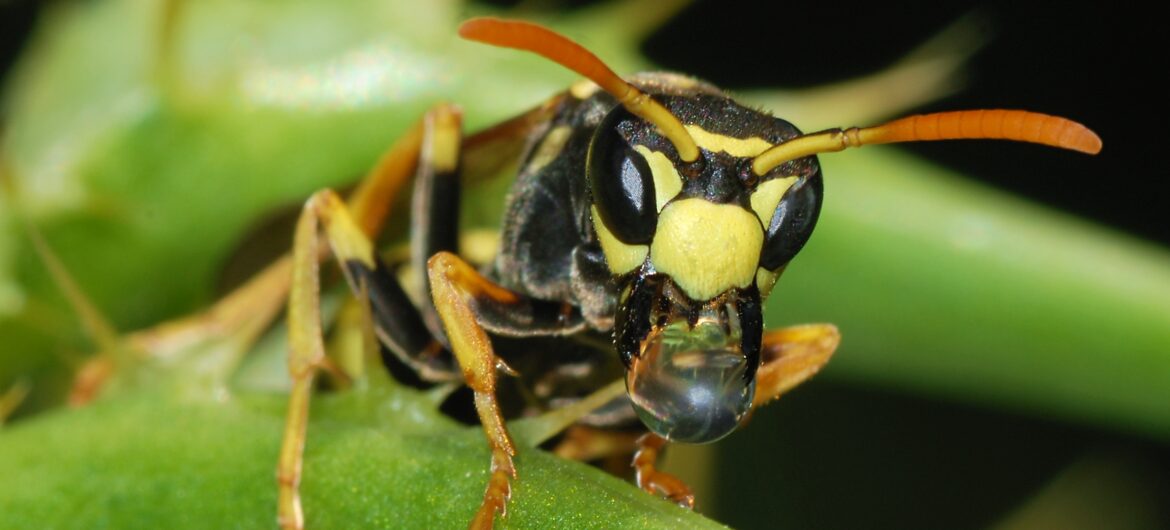words by Annabel Kartal-Allen, Staff Writer
Most of us will have encountered many insects in our lives- that one mosquito that buzzes round your head for hours in the summer, the crickets chirping in the meadows, those cockroaches under your fridge if you’re nasty. But of all insects, there’s one that really provokes the most disdain, the purest hatred: the wasp. Their cousins, the bees, don’t receive nearly as much backlash as they go about their lives- and it all comes down to perception. Now to convince you the wasp is a majestic predator…
The wasp has always had bad press from day one, with 14th century European militaries using them as deadly bioweapons, flinging them hundreds of meters into the enemy front to cause havoc amongst opponents. If someone flung my house into the air unexpectedly, I too would be grouchy. But from this, the association between wasps and danger was truly embedded into society. Though bees were used for this same purpose, they were given a free pass due to their great use to humans: through honey production, wax comb production and their pollination services.
The negative attitude towards wasps only worsens with the knowledge that some wasps kill bees- the pollination poster child. Though this is refined to a small number of species, this was enough to infuriate even the most casual bee supporter. Therefore, through highly biased knowledge of wasp biology and their vexing habit of crashing picnics, they earned their poor reputation.
Although they may appear to be villainous, wasps are actually highly useful both economically and environmentally and shouldn’t be ignored for their services. The myth that wasps do not pollinate is false on all accounts- there are plenty of plants that completely rely on wasp pollination, including virtually all fig trees, orchids and some species of African pineapple lilies. Wasps also act as generalist pollinators just as the honeybee would, contributing to survival of plants that bear fruits we know and love- some of which wouldn’t exist without pollination.
As well as pollination, some wasps also act as great predatory gatekeepers, consuming excess herbivore pests that cause farmers a great deal of crop loss without the need for pesticides. The potential use of their natural predatory behaviours has not gone unnoticed, with many farmers purposefully releasing wasps onto their farmland as a natural pest control method. Without these key species, both agricultural and natural floral growth in ecosystems could be strongly impacted, as wasps keep the numbers of herbivores at a normal and non-detrimental level for many ecosystems globally.
Furthermore, venom from wasps has been repurposed by scientists as a potent antibiotic, which can be used to eliminate some respiratory-targeting bacteria that are resistant to virtually all other antibiotics on the market. As well as this, wasp venoms have been adapted to treat certain bladder cancers, causing specific damage to tumour cells by causing them to leak vital innards.
Human perception of insects will always be tinged with some element of fear, and though most wasps can sting, their presence should not be feared. They have many highly beneficial uses both to us as humans and the world we live in, and without them, we’d all be worse off. They could be compared to lions or tigers- majestic predators that show viciousness but have redeeming qualities in their services to their ecosystems, except in a smaller, winged package.





